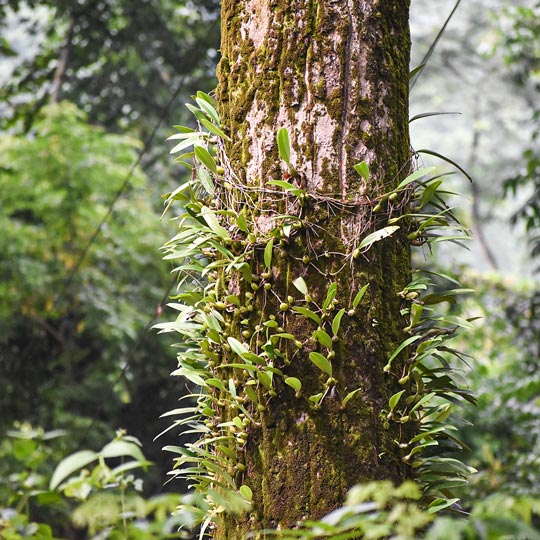Biological Diversity Act
The Biological Diversity Act, 2002 (BD Act, 2002) was enacted owing to India’s obligation under the International obligation under Convention on Biological Diversity, 1992. The convention is built on the three-fold objective: conservation of biological resources, their sustainable utilisation and equitable sharing of benefits arising out of utilisation of biological resources and related traditional knowledge. The Act is built on a three-tier institutional structure: the National Biodiversity Authority, State Biodiversity Boards and Biodiversity Management Committees (BMCs).
The BMCs which are to be constituted at every local body have the primary responsibility of preparing a People Biodiversity Registers (PBRs) which are comprehensive records of local biodiversity. The PBRs prepared serves as a legal document which confirms the sovereign rights of that BMC over the resources documented. It serves as a legal basis which proves that the traditional knowledge associated with a particular biological resource is the ‘prior art’ of that particular community and therefore, cannot be patented.

Further, the documentation of people’s knowledge about their ecological setting, the changes taking place in these settings and the drivers of these changes reveals important issues of natural resource management. The Action Plan prepared post the PBR preparation (as mandated under the Act) which reflects the conservation priorities of that area, then acts as a basis for a knowledge based system of natural resource management. The BMCs have been empowered to levy financial charges in the form of fees from those accessing biological resources from their jurisdiction; thereby enabling the BMC to sustain itself.
Legal Initiative for Forest and Environment (LIFE), Delhi based organisation is working actively on the implementation of the BD Act, 2002. Its activities comprise of both legal researches support and on-field activities:
LIFE’s research has been used by other groups in their advocacy for better implementation of the Biodiversity Act, 2002. Specifically, LIFE’s legal research has been used in a petition in the National Green Tribunal (C.B. Singh vs. Union of India and Ors.), which specifically looks at the status of functioning of the SBBs and BMCs.
The NGT in this case in a significant order dated 08.08.2018 took note of the compliance status that even after 15 years of the BD Act, the constitution of BMCs stands at 34% (BMCs have been constituted at 73,367 out of 2, 15, 000 local bodies), compliance with respect to PBR preparation stands at 8.37% (PBRs have been prepared for 6146 out of 73367 BMCs), BMCs from only 2 states have collected fees and the State Government have largely failed to provide grants.
The NGT after recording the above findings directed that BMCs and PBRs be prepared within 6 months and that NBA and MOEF shall ensure compliance with Tribunal’s orders. The Tribunal further directed the respective State Governments to produce monthly monitoring reports to the NBA.
2. Field Activities:
To better understand the working and functioning of BMCs, LIFE has undertaken field visits to three biodiversity rich states of India: Himachal Pradesh, Uttarakhand and Madhya Pradesh. The visit entailed meeting important stakeholders: Government officials, Local civil society organizations and local communities.
LIFEs field visit experience from the states revealed one general finding that though the local communities are committed towards conserving their forests and biodiversity, still the extent of legal awareness was missing. Though BMCs had been formed, they were not given much training with respect to their roles, responsibilities as expressed in the legislation. Targeting this gap, LIFE had conducted three Training Workshops each in Himachal Pradesh, Uttarakhand and Madhya Pradesh in collaboration with the respective State Boards and local NGOs. The workshops highlighted the provisions of the Act, the need to strengthen constitution of BMCs at the gram panchayat level, ensuring their proper working and functioning, raising awareness among them with respect to their powers, roles and responsibilities and building their capacities to generate their own finances, challenges with respect to biodiversity conservation as posed by illegal trade in medicinal plants in the state, the need to change local farming system by re-introducing the traditional varieties of food crops.
Through LIFE’s in depth research, it has come out with the following policy papers for its advocacy towards strengthening the Biodiversity authorities and for circulation among the audience at large. These policy papers focus on the following provisions of the Biodiversity Act: Biodiversity Management Committees, People’s Biodiversity Registers, Access and Benefit Sharing and Biodiversity Heritage Sites. These Policy Briefs and Reports on Training Workshops can be found in the Publications Section.

